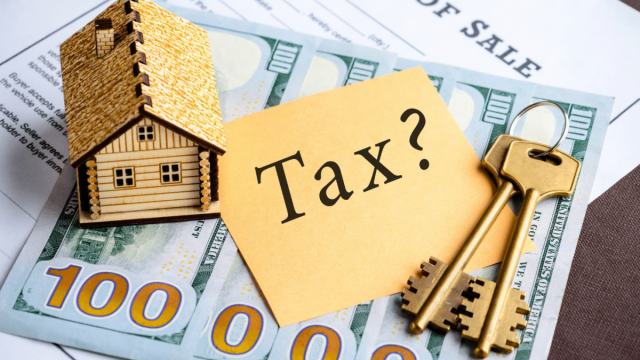Timely payment of property taxes is paramount for maintaining good standing with local authorities and ensuring the proper functioning of community services. This exploration sheds light on the potential penalties, interest accruals, and legal actions that may follow delayed payments. As property taxes play a vital role in funding essential public services, understanding the consequences of lateness is imperative for property owners. This guide aims to provide insights into the impacts of tardy payments, encouraging timely compliance with tax obligations.
Conversely, exploring the consequences if someone else pays your property taxes highlights potential complexities. While well-intentioned, such actions may entail legal and financial implications, underscoring the importance of understanding the nuances of property tax responsibilities and obligations.
Penalties for Tardy Payments: Unraveling the Financial Consequences
Contents [show]
When property owners miss payment deadlines, they expose themselves to a spectrum of financial penalties, such as late fees or percentage-based charges. This section delves into the specific repercussions, providing insights into the immediate financial strain imposed on individuals who fail to meet their property tax obligations promptly. Understanding these consequences becomes imperative for property owners, emphasizing the importance of timely payments to maintain fiscal responsibility and prevent the accumulation of additional financial burdens associated with late property tax payments.
Interest Accruals: Understanding the Financial Burden Over Time
Late property tax payments trigger interest accruals, compounding the financial burden over time. Delve into how this gradual increase can significantly escalate the total amount owed, underscoring the importance of timely payments to mitigate long-term financial strain.
Impact on Credit Score: Unraveling the Creditworthiness Thread
Examining how financial delinquency influences credit scores, this section explores the potential long-term effects on an individual’s ability to secure favorable loans and financial terms. Late property tax payments, if reported to credit bureaus, may result in a lowered credit score, affecting financial credibility. Understanding this creditworthiness thread becomes crucial, emphasizing the broader implications of fiscal responsibility and timely property tax payments on an individual’s overall financial health and future borrowing capabilities.
This section elucidates the legal actions that local authorities may initiate due to prolonged non-compliance. Understanding the legal ramifications involves navigating possible repercussions, such as liens, foreclosure proceedings, or other legal measures. Delving into the complexities of these potential actions emphasizes the urgency of addressing overdue property tax obligations promptly. Property owners gain insights into the critical importance of compliance with tax responsibilities to avoid legal entanglements, safeguard property interests, and maintain financial stability within the legal framework of property taxation.
Community Services at Stake: Grasping the Broader Impacts
Late property tax payments extend beyond individual repercussions, impacting essential community services funded by property taxes. Explore how delayed payments can strain local infrastructure, potentially affecting schools, public safety, and other vital services crucial to the community’s well-being. In contrast, adding a pole barn to your property is a personal investment that, when done responsibly, contributes positively to your individual space. Understanding the broader implications of community services emphasizes the need for timely property tax payments, ensuring the sustained support of essential services for the collective benefit of the community.


